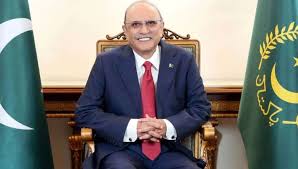President Zardari's Message On World Population Day
World Population Day offers us a moment to reflect on evolving population trends and renew our commitment to ensuring the well-being and prosperity of all citizens.

World Population Day offers us a moment to reflect on evolving population trends and renew our commitment to ensuring the well-being and prosperity of all citizens.
The theme for this year, “Empowering young people to create the families they want in a fair and hopeful world,” captures the essence of Pakistan’s demographic reality. With our population exceeding 242 million, the urgency to adopt forward-looking, evidence-based population policies has never been greater than it is at present. We have a huge youth bulge – our greatest strength, if nurtured through access to education, healthcare, opportunities, and agency.
However, the challenge of population growth continues to hinder our national development process. With over 240 million people, the pressure on our national resources, health and education infrastructure, and public services is immense. Rising unemployment, environmental degradation, deforestation, and overstretched health and education systems are symptoms of the imbalance between population size and available resources.
To address the challenge of population growth, a comprehensive, and inclusive based approach is essential. Access to quality family planning services needs to be expanded, particularly in rural areas. The focus should be on women’s education and employment, and they should be given equal opportunities, as their empowerment directly influences family choices.
Furthermore, the government needs to enhance its focus on a comprehensive population agenda, guided by the principle of Tawazun — achieving harmony between population growth and resource availability. This approach is supported by stakeholders across sectors, including religious leaders, policymakers, and development partners. It reflects our shared commitment to securing a healthier, more equitable, and resource-efficient future.
Similarly, the involvement of communities is equally important. When community leaders, elders, and civil society organizations promote the benefits of responsible parenthood and support access to family planning, societal attitudes begin to change. The media also has a central role to play in raising awareness and promoting healthy practices, and can significantly influence public behaviour.
International best practices also need to be adopted. These include integrating family planning into primary healthcare systems, promoting reproductive health through community-based outreach, deploying trained female health workers at the grassroots level, and using mass media to promote public education and behavioural change. Such strategies can help stabilize population growth.
I call upon all institutions—government bodies, civil society, academia, the private sector, and the media—to play their part in strengthening awareness, expanding access to reproductive health services, and prioritising youth empowerment.
---------


No comments yet.